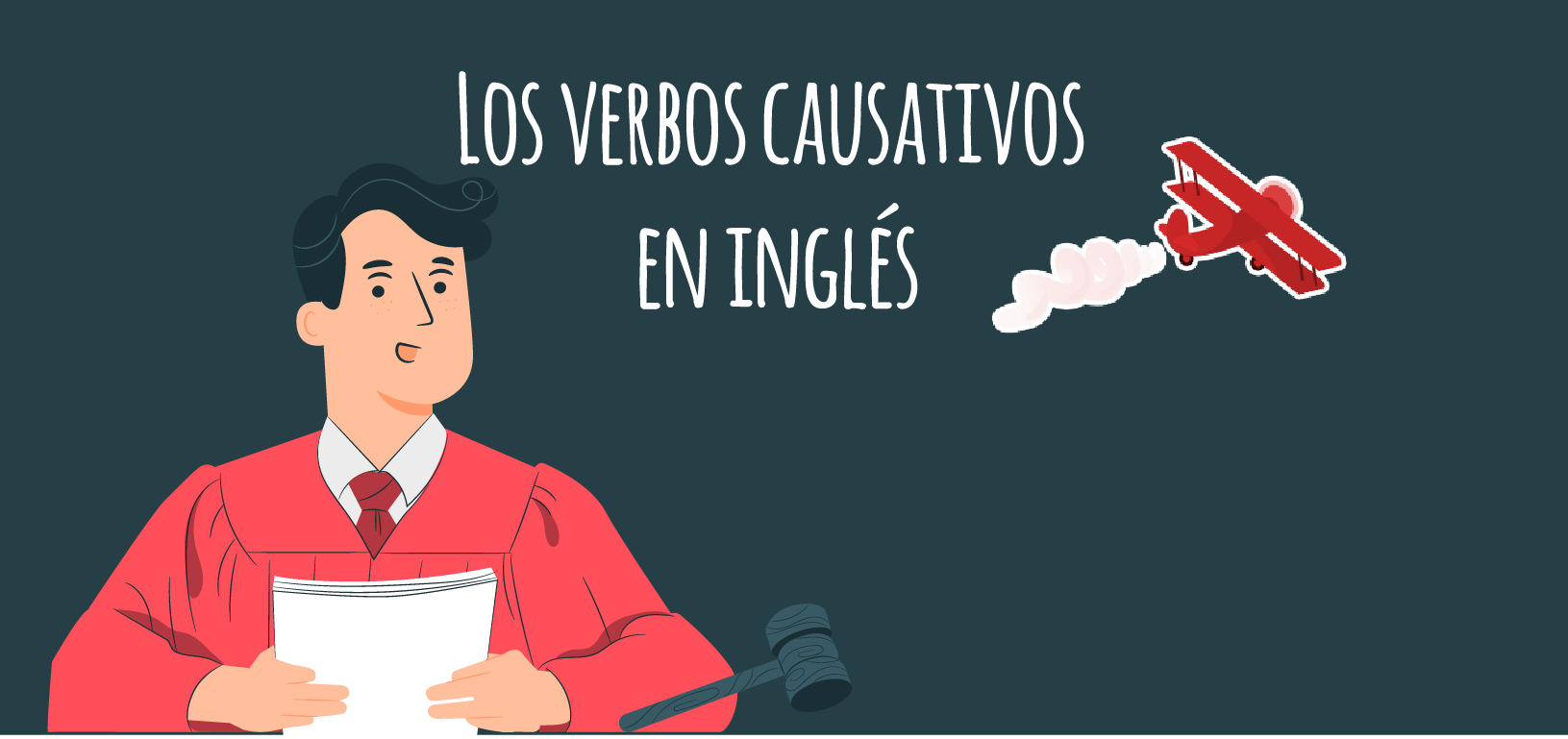Learn about causative verbs

Causal verbs are verbs that show that someone else is doing something for you. For example, we (normally) don’t repair our own washing machines or cut our own hair. Instead, we pay someone else to provide these services to us, and we may use a causative verb to say this in English.
ÍNDICE DE CONTENIDOS
The verbs causative include: let (allow, permit), make (force, project), have, get, and help. These can be in any tense, generally followed by an object and another verb form, often an infinitive, simple form, or participle.
What is the causative form of the verb?
The causative is a type of productive morphological construction in certain languages. It is usually done using a derivative affix that can change the valence of the verb. The causative is used to express that the subject of the sentence does not perform the action, but causes another to do it.
Examples:
- David is going to have his house painted next month.
A David le van a pintar su casa el mes que entra.
- Ana had her hair cut last week.
A Ana le cortaron el cabello la semana pasada.
To learn the use of this type of structure, it is necessary to stop in each particular case.
Make
With this causal structure, there is the idea of provoking, of forcing someone to do something. Here the main verb does not change (always the infinitive without to (a), it is the verb to do that changes, depending on whether we are talking in the past, present, future.
- The film made us cry.
La película nos hizo llorar.
- My driving instructor made me practice parallel parking.
Mi instructor de manejo me hizo practicar el estacionamiento en paralelo.
- I’m going to make my son tidy his room this evening!
¡Voy a hacer que mi hijo ordene su habitación esta noche!
- I can’t believe she made me wait for so long.
¡No puedo creer que me hizo esperar tanto!
- We will make them reconsider their decision.
Les haremos reconsiderar su decisión.
Have
Have expresses the idea that a third person does something for the main subject. It can also mean: giving someone the responsibility to do something.
Formula to memorize: Subject + have (had) + person + infinitive verb.
Let’s see a second formula to use passively:
Subject + have (had) + object + verb in past participle.
- I had my house painted last year.
Me pintaron la casa el año pasado.
Get
We use this causal structure formula in English when we ask someone to do something for us. We will see that, in all these examples, it is specified who is performing the action:
- I get my sister to cut my hair.
Consigo que mi hermana me corte el pelo
- She gets her assistant to make her travel arrangements.
Ella le pide a su asistente que le haga los arreglos de viaje
We can also use the verb to have instead of getting, without changing the meaning, but in this case, we don’t put to in front of the main verb:
- I get my sister to cut my hair. = I have my sister cut my hair.
Consigo que mi hermana me corte el pelo. = Le pedí a mi hermana que me cortara el pelo.
- She gets her assistant to make her travel arrangements. = She has her assistant make her travel arrangements.
Ella le pide a su asistente que le haga los arreglos de viaje = Hace que su asistente le haga los arreglos de viaje.
We can also use this structure when we express ourselves in the past or in the future with any tense in fact, but it is the verb to get (or to have) that is conjugated, and the main verb always remains in the infinitive:
- I will get the IT department to install the new program (o bien I will have the IT department install the new program).
Conseguiré que el departamento de TI instale el nuevo programa (o bien, haré que el departamento de TI instale el nuevo programa). Haré que TI instale el nuevo software.
- They got the shop to deliver the furniture last Saturday (o bien they had the shop deliver the furniture last Saturday).
Consiguieron que la tienda entregara los muebles el sábado pasado (o bien, hicieron que la tienda entregara los muebles el sábado pasado
- I’m getting a caterer to prepare the meal (o bien I’m having a caterer prepare the meal).
Voy a contratar a un proveedor para que prepare la comida (o voy a pedir a un proveedor que prepare la comida).
Let someone/something do something
It means that you allow someone to do something or you allow something to happen.
| Let
Dejar | someone/something
alguien/algo | do something
hacer algo |
| She let
Ella dejó | the children
los niños | stay up until ten.
Quédate despierto hasta las diez. |
| Why did you let
¿Por qué dejaste? | the vegetables
los vegetales | overboil?
hervir en exceso? |
| This is the last time I let
Esta es la última vez que dejo | you
tú | tell me what to do!
¡Dime qué hacer! |
| Let
Dejar | me
me | come too!
Ven también |


